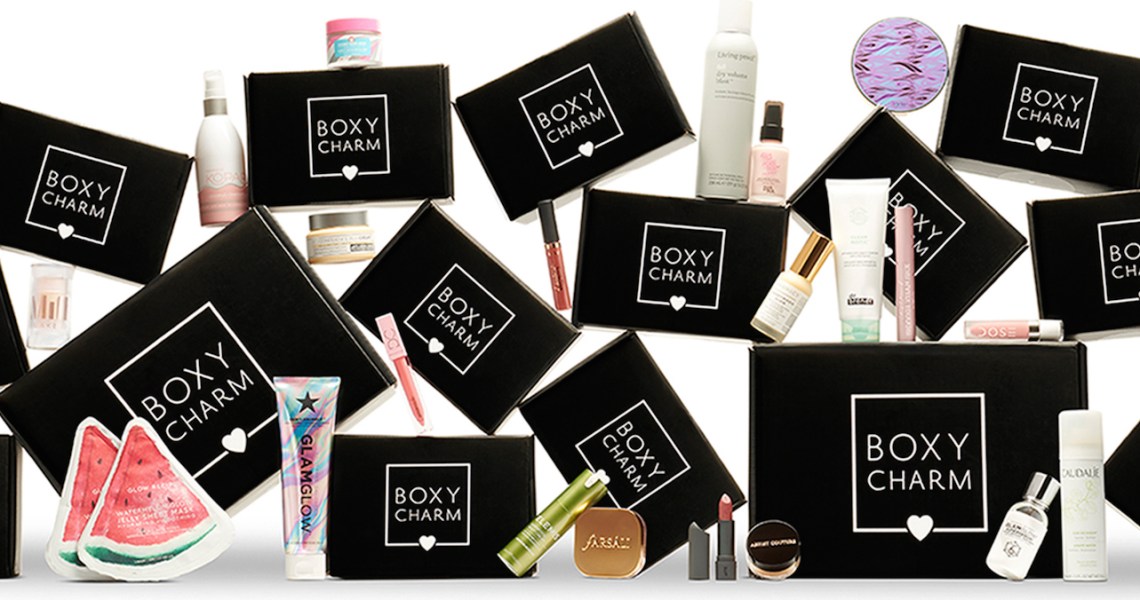BoxyCharm is moving into complexion products.
Beginning in November, the beauty subscription company will send its nearly 1 million subscribers blister packs with small samples of foundation and concealer from at least three brands. They’ll be prompted to find the shade that best matches their skin and take an online questionnaire about complexion products to start receiving complexion products quarterly in their boxes beginning in 2020.
BoxyCharm plans to share this customer data with participating brands, though it may build a new revenue stream out of the offering, charging brands on a case-by-case basis for the data. Available data will include the percentage of customers who match best with a certain brand, shade or undertone. Six-year-old BoxyCharm saw revenue grow by 300% from 2017 to 2018, hitting $137 million in 2018.
“Once we have this knowledge, we can help brands improve the online experience they offer,” said Yosef Martin, BoxyCharm founder and CEO. “Color-matching could potentially eliminate the need for consumers to go into stores.” When recommending a shade to an online shopper, a brand could display shades from other brands that closely match their own suggestion, she said.
Distribution and retail partners historically do not share data with brands beyond sales, however some like Heyday have begun to explore the possibility.
Fellow beauty subscription box Ipsy has offered complexion products since 2012 and worked with Make Up For Ever in to launch a foundation range in 2016. Using its own online questionnaire that collects over 100 data points, the company sent the product to 1 million subscribers with a reported 99% shade accuracy, according to Sabeen Mian, executive vice president of membership.
Martin declined to cite what brands will offer complexion products through BoxyCharm, but existing brand partners in other categories include hair care brand Living Proof, skin-care brand Glow Recipe and body care brand Sol de Janeiro.
Ad position: web_incontent_pos1
The subscription beauty box business has gone through multiple transformations as various businesses have begun to mature. Birchbox pivoted away from its original intention of taking on Sephora and opening brick-and-mortar stores to working with Walgreens. Ipsy has expanded its own box sizes as well as ventured into events. Meanwhile, FabFitFun has leaned heavily on building out its video and written content in addition to its e-commerce business, and it’s begun working with QVC.
This is all despite the repeated death knells of the subscription market with companies like BlueApron serving as a cautionary tale. Last year the subscription market yielded a record of $1.2 billion in capital invested, perhaps due to the industry maturing and yielding greater value as a result, according to Pitchbook. Kenya Watson, CB Insights associate analyst, said that momentum will continue throughout 2019.
“Despite the emergence of leaders like Birchbox and Ipsy, we’ve seen a reasonable amount of startup investment activity so far in 2019 for beauty subscription boxes,” said Watson. Notably, FabFitFun raised $80 million in a Series A in January.
BoxyCharm’s business model operates by covering the manufacturing price for participating brand partners. In line with its complexion foray, it is also making key changes to its subscription model. As of November 1, it will charge basic tier customers $25 per month for a box of at least four full-size products (an increase from $21). In September 2018, BoxyCharm added BoxyLuxe, a quarterly box of roughly 10 products for $50. BoxyCharm will launch a middle-of-the-road option in November, BoxyCharm Premium, which will include at least six products every month for $35 a month.
Separately, BoxyCharm is building out other digital components of its business for continued growth. On Thursday, BoxyCharm announced it is working with Lightricks for its October beauty box, allowing subscribers to use Lightricks’ apps to virtually try on the month’s beauty products. And in 2020, the company will expand into e-commerce in a model reminiscent of FabFitFun, offering subscribers the ability to add on products for a discounted price monthly. It will also offer a larger quarterly online sale dubbed BoxyCharm Pop-Up.
Ad position: web_incontent_pos2
“We are trying to make sure we understand that if we have millions of [subscribers] and the potential to expand into other countries, that we make sure we don’t get too comfortable with what we are doing,” said Martin. “At the end of the day, BoxyCharm is a discovery box, not a replenishment box. But if we do not excite our members, they’ll go somewhere else.”




